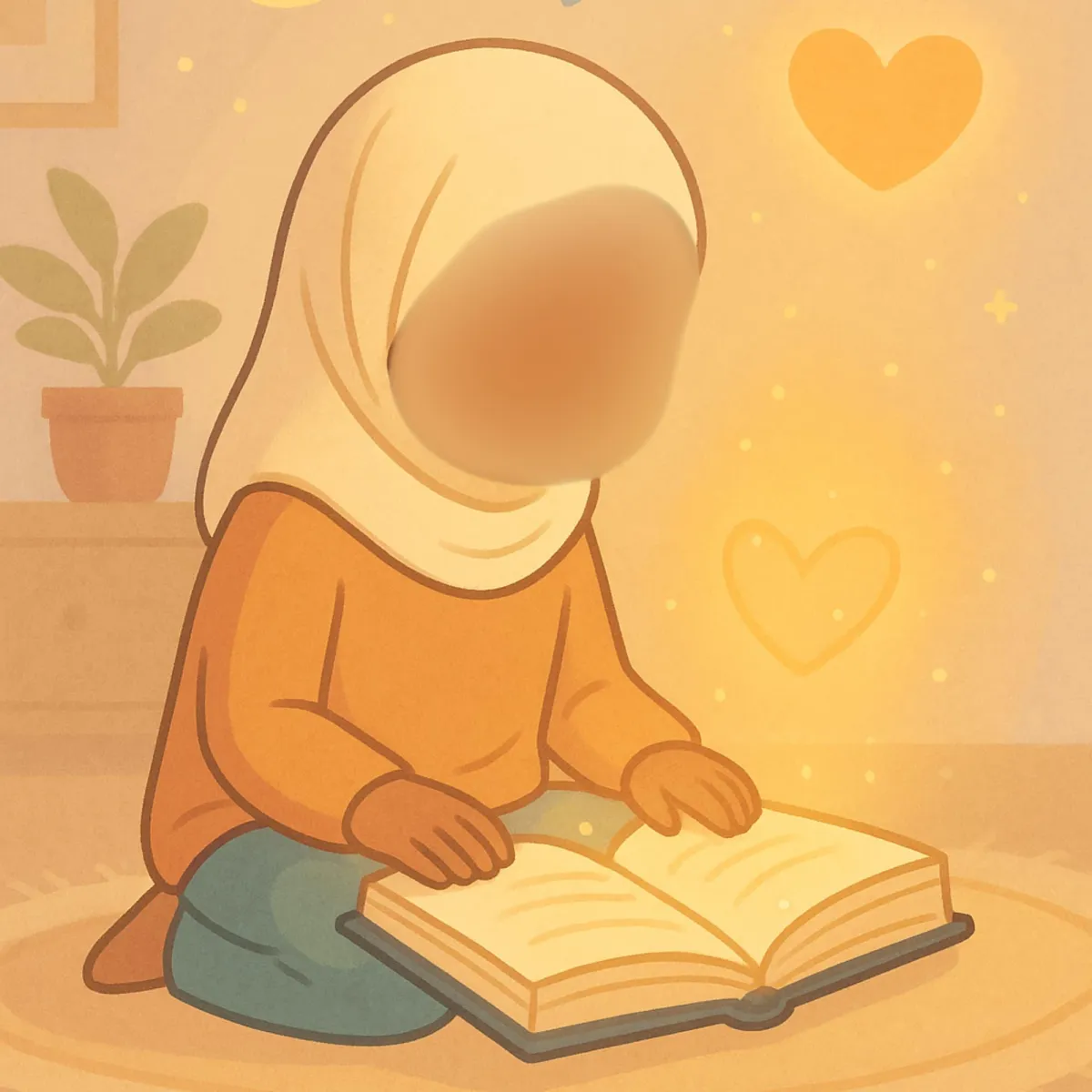
What Should Muslim Children Learn First? (Ages 3–7)
“It’s just a children’s story, right?” - most parents
What Should Muslim Children Learn First? (Ages 3–7)
A Simple Guide to Building Strong Islamic Foundations at Home
If you’re a parent trying to raise your children with Islamic values, you’ve probably asked:
“Where do I start?”
“What should my child learn first about Islam?”
Should it be prayer? Duʿāʾ? The Arabic alphabet?
The early years are full of questions and curiosity — and they’re the perfect time to plant seeds of faith, love, and belief in Allah.
Here’s a simple guide to what every Muslim child should start learning — and how to make it easy at home.

1. Start With Knowing Allah (Tawḥīd)
The very first thing your child should learn is who Allah is.
That He created everything
That He is above the heavens, watching us
That He gives us food, rain, family, and life
That we worship Him alone
This is called Tawḥīd — pure belief in Allah’s Oneness — and it’s the message of every Prophet.
📖 Teach it through nature and conversation:
“Who made the stars?”
“Who gives us food?”
“Who made you?”
Let them answer: “Allah.”
2. Keep It Simple, Repeat It Often
Children learn by hearing the same things again and again — especially in a loving, clear way.
Use short, true statements:
“Allah made the moon.”
“Allah hears us.”
“We only pray to Allah.”
Avoid confusing phrases like “Allah is in your heart” or “Allah is everywhere.” Instead, say:
“Allah is above us, but He sees everything.”
Clarity matters. Confusion now can lead to misunderstandings later.
3. Teach Them Duʿāʾs They Can Use
Duʿāʾ is a beautiful habit to build early.
Start with:
Bismillah before eating
Alhamdulillah after sneezing or eating
Astaghfirullah when doing something wrong
Allāhumma ḥfaznī (O Allah, protect me)
Make duʿāʾ part of their everyday moments — bedtime, waking up, going out.
4. Build Manners from the Sunnah
The Prophet ﷺ said:
“I was sent to perfect good character.” (Ahmad)
Start with:
Saying salaam with a smile
Being gentle and patient
Saying please, thank you, and sorry
Keeping promises
Stories are a great way to teach these values.
5. Use Storybooks That Teach Islam Without Confusion
Many Islamic books look cute — but sadly, they don’t always teach correctly.
That’s why Tawheed Learning creates storybooks with:
Pure belief in Allah (Tawḥīd)
Good manners from the Sunnah
Real-life duʿāʾs and situations kids understand
📚 Try books like:
Zayn Wonders About the World — learning from Allah’s signs
Sami Keeps His Promise — truthfulness
Bilal Says Alhamdulillah — remembering Allah in everyday life
These are not just stories — they’re soft, strong building blocks for your child’s īmān.
Final Advice: Focus on Hearts, Not Pressure
You don’t need to cover everything at once.
Focus on love, truth, and consistency — and in shā’ Allāh, your child will grow up with a clear understanding of Islam and a heart full of īmān.
Looking for simple, authentic storybooks to teach your child about Allah?
🎁 Download our Childrens PDF books from Tawheed Learning to start their journey today.

Also Check out our Islamic Stories Audio App Coming soon. (Click here to register interest and be notified once it launches)

